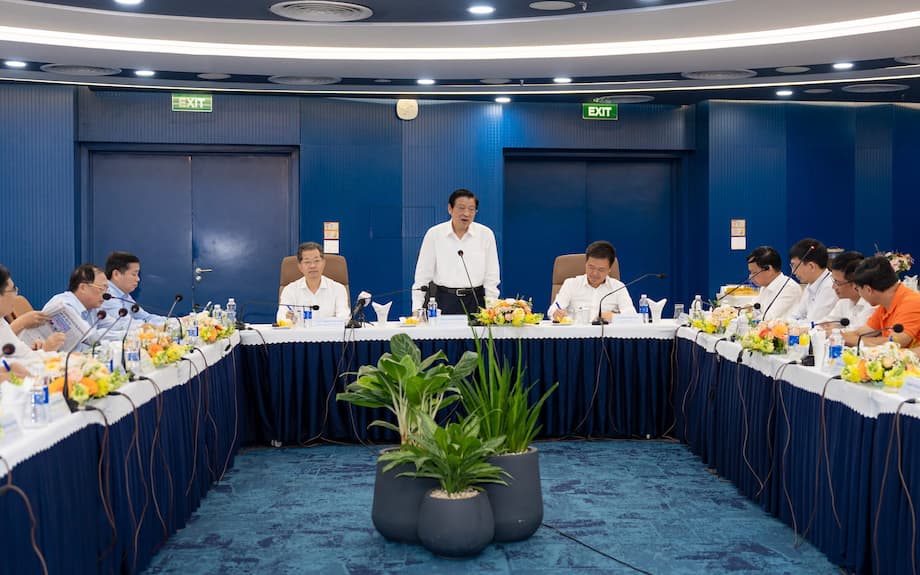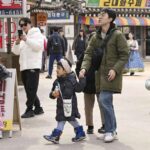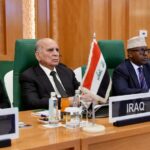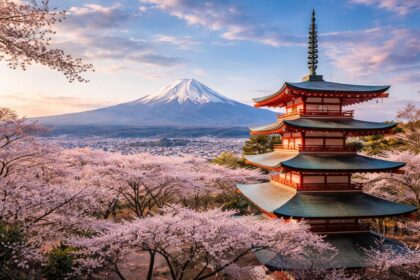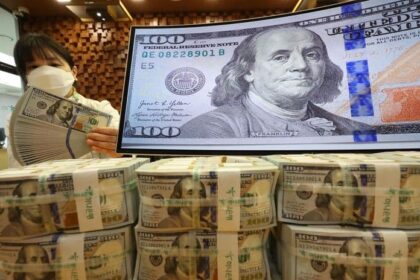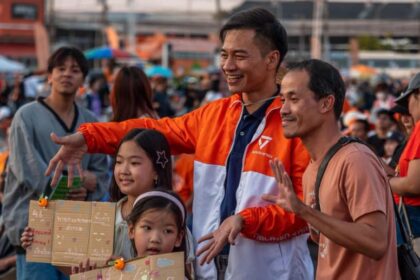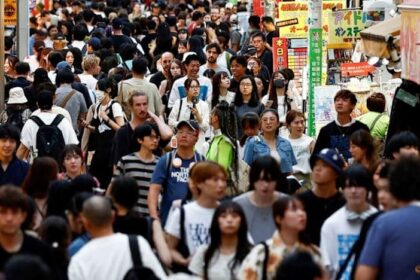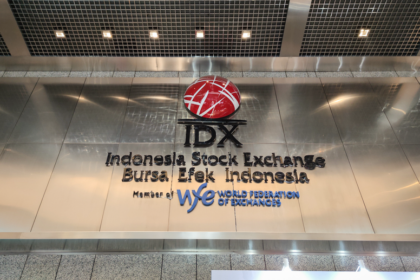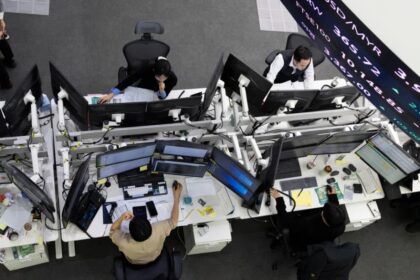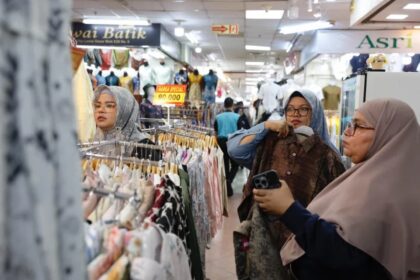A renewed pledge in Hanoi
Vietnam has again placed its position on Palestine in clear terms, during talks in Hanoi between Politburo member Phan Dinh Trac, Secretary of the Communist Party of Vietnam Central Committee and head of its Commission for Internal Affairs, and Azzam Najib Mustafa Al-Ahmad, Secretary General of the Palestine Liberation Organization. The Vietnamese side stressed that the Party, the State and the people value the friendship with Palestine, a bond formed in difficult years and carried forward by generations. Both sides agreed that the relationship should be preserved, strengthened, and passed to the next generation.
Trac reiterated a consistent policy: support for the just cause of the Palestinian people and the two state solution grounded in international law and United Nations resolutions. He voiced concern over the continuing war in Gaza and the severe humanitarian toll, and called on all involved to reach a ceasefire and move toward a sustainable resolution. The meeting, which also followed a reception by Party General Secretary To Lam for the Palestinian delegation, came as Vietnam states broader national goals to build a modern industrial economy and reach upper middle income status by 2030, and high income status by 2045. The message from Hanoi linked domestic progress with a commitment to a rules based international order and to a just peace for Palestinians and Israelis alike.
What Hanoi told the PLO leader
According to readouts by Vietnamese outlets, Trac raised both principles and practical steps. He underlined support for a state of Palestine living in peace and security alongside Israel, the need to protect civilians, and the urgency of humanitarian access in Gaza. He encouraged closer coordination in international forums and stronger ties between the Communist Party of Vietnam and the PLO, including more delegation exchanges and people to people cooperation. The two sides said they would work on concrete projects that match Palestine’s needs and Vietnam’s capabilities, from training to governance sharing.
PLO Secretary General Azzam Al-Ahmad thanked Vietnam for what he called a faithful friendship that extends from wartime solidarity to present day diplomacy. He described the reception hosted by Party General Secretary To Lam as a statement of trust and enduring kinship between the two peoples.
A reception like this conveys a deep sense of trust, loyalty, and the enduring relationship between Vietnam and the peoples of the world, Al-Ahmad said, expressing gratitude for Vietnam’s consistent support at international forums.
The visit closed with commitments to expand contacts and to match words with practical cooperation across education, health, and governance.
Vietnam’s two state stance explained
Vietnam’s position revolves around a two state solution. In simple terms, this means an independent, sovereign State of Palestine existing side by side with the State of Israel. The approach Vietnam backs aligns with United Nations resolutions and the legal principle of self determination. It calls for geographic arrangements based on 1967 borders, with East Jerusalem as the capital of the Palestinian state, security guarantees for both peoples, and a negotiated settlement of final status issues such as borders, refugees, and Jerusalem. Vietnamese statements also stress immediate steps: an enduring ceasefire, release of hostages, compliance with international humanitarian law, and unobstructed delivery of aid.
At the United Nations, Vietnam’s Permanent Representative, Ambassador Dang Hoang Giang, set out this stance during an emergency special session on the Palestinian question. He argued that equal footing at the UN would create better conditions for talks and for a just peace.
Vietnam stands with Palestine in exercising its inalienable right to self determination and supports its early admission as a full UN member, Ambassador Giang said, adding that this would strengthen prospects for the two state solution and long lasting peace in the Middle East.
His remarks also condemned violence against civilians, called for restraint by all parties, and underlined the central role of the United Nations Relief and Works Agency (UNRWA) in urgent relief for Palestinian refugees. Vietnam has also urged adherence to provisional measures ordered by the International Court of Justice and to relevant UN resolutions.
Humanitarian aid and development support
Vietnam has paired diplomatic statements with material support. At the 4th Conference on Cooperation among East Asian Countries for Palestinian Development in Kuala Lumpur on July 11, Deputy Prime Minister and Foreign Minister Bui Thanh Son announced an additional 350,000 dollars in humanitarian aid for the Palestinian people. The funds are to be delivered through relevant international organizations and aimed at immediate relief and post conflict recovery.
CEAPAD, launched by Japan in 2013, brings together East Asian partners from ASEAN, South Korea, and Japan to coordinate training, institution building, and economic support for Palestine. Delegates in Kuala Lumpur raised deep concerns about the Gaza crisis, urged a ceasefire, and adopted the CEAPAD IV Action Program to align projects with Palestinian priorities. Vietnam said it would continue to share development experience in areas such as public administration, agriculture, and vocational training, and would work with partners to mobilize resources for reconstruction.
The Deputy Prime Minister restated the familiar political baseline that guides these practical programs.
Vietnam supports the creation of an independent and sovereign Palestinian state with East Jerusalem as its capital, based on relevant UN resolutions and agreements, Bui Thanh Son said at CEAPAD IV.
Vietnam has also used multilateral events to push for humanitarian access. Calls for corridors, deconfliction for aid convoys, and respect for medical neutrality have featured in official speeches and notes sent to the UN during the International Day of Solidarity with the Palestinian People in late November last year.
Vietnam at the United Nations
Vietnam has backed increased recognition for Palestine at the UN. In May 2024, after a draft to admit Palestine as a member was blocked in the Security Council, the General Assembly adopted a resolution upgrading the rights of the State of Palestine as an observer. Vietnam supported the resolution and called for the Council to consider full membership favorably. The message from Hanoi was that a rules based path at the UN can support direct negotiations and create better conditions for deescalation.
On the International Day of Solidarity with the Palestinian People in November 2024, State President Luong Cuong sent messages to the UN Secretary General, the President of the General Assembly, the head of the UN Committee on the Exercise of the Inalienable Rights of the Palestinian People, and to President Mahmoud Abbas. His letters repeated Vietnam’s solidarity, lamented the immense suffering in Gaza, and touched on a willingness to help with mediation and aid.
Vietnam reaffirms strong support for and solidarity with the Palestinian people in their just struggle for independence and freedom, the President wrote in his messages marking the day of solidarity.
Vietnamese diplomats have also underscored the need to protect UNRWA’s capacity to operate. The agency remains the main provider of education, health care, and relief for millions of Palestinians, and its work is central to stabilizing daily life in Gaza and the West Bank during crises.
A relationship shaped by shared history
Vietnam and the PLO established relations in 1968, when North Vietnam was still at war. The PLO opened a mission in Hanoi in 1976. It became an embassy in 1982. Vietnam recognized the State of Palestine on November 19, 1988, soon after the Palestinian Declaration of Independence. Yasser Arafat visited Vietnam many times, with his last trip in 2001, and Palestinian leaders saw Vietnam’s story of national liberation as a source of strength for their own cause.
The relationship also provided support during regional crises. When Vietnam faced conflict with China in 1979, the PLO backed Hanoi and condemned Beijing’s actions. During the 2008 to 2009 Gaza war and again in 2014, Vietnam condemned attacks on civilians and urged restraint, an end to military operations, and a return to negotiations. After the deadly raid on the Gaza flotilla in 2010, a planned visit by Israel’s president to Vietnam did not go ahead. These episodes reveal a steady pattern in Vietnam’s messaging: support international law, protect civilians, and press for talks that lead to a viable two state arrangement.
Civic connections have persisted alongside state to state ties. Cultural exchanges, student delegations, and people to people friendships have kept Palestine visible in Vietnam, even as the two countries focused on their own development paths. The shared memory of anti colonial struggle, from Dien Bien Phu to Palestine’s long search for statehood, still shapes how many Vietnamese view the conflict.
Balancing principle and pragmatism
Vietnam practices what its leaders call bamboo diplomacy. The metaphor describes a flexible foreign policy that bends with the wind yet keeps firm roots. That approach helps Vietnam maintain productive relations with many partners who are at odds with one another. It includes a growing economic and technological relationship with Israel, including trade and defense items, as well as long standing solidarity with Palestine at international forums. The combined picture is cautious and calibrated.
Reporting and analysis have noted that Vietnamese officials avoid direct, accusatory language toward Israel in public statements, while casting votes and issuing letters that support Palestinian rights. The Gaza war revived public empathy for Palestinians, especially among younger Vietnamese who connected wartime images from Gaza to accounts of air raids on Hanoi in the 1970s. Activists and artists have organized low key events, discussions, and translations of Palestinian poetry to build understanding. These community efforts are modest, and they operate within rules that limit large public gatherings, yet they add a human dimension to official diplomacy.
For Hanoi, the question is how to keep principles intact while preserving economic ties and security cooperation with a wide range of states. The answer in practice has been to anchor statements in international law, back UN processes, provide humanitarian aid, and position Vietnam as a helpful partner for reconstruction and institution building when the guns fall silent.
Why this stance matters regionally
Vietnam’s advocacy is part of a broader East Asian effort to assist Palestinians through CEAPAD and related initiatives. That forum focuses on development, training, and institution building, which are areas where Vietnam believes its own experience is relevant, from poverty reduction to public administration. By putting resources into humanitarian relief and capacity building, Vietnam aims to help create conditions where a political agreement can take root.
Vietnam’s voice also carries weight in the Global South. The country speaks from the perspective of a former colony that rebuilt after long wars. Its support for a negotiated two state settlement aligns with the positions of many ASEAN members and with broader calls at the UN for ceasefire, protection of civilians, and accountability for breaches of humanitarian law. Engagement at this level can help bridge conversations among Arab states, Western partners, and Asian actors that are ready to contribute aid, training, and investment once a political track advances.
The message to both sides is consistent. Violence against civilians must stop. Hostages must be released. International law matters. A credible political process is needed to resolve key questions of borders, security, and refugees. Vietnam has signaled that it will contribute within its means to aid delivery, to planning for recovery, and to the diplomatic work required to turn statements into agreements.
What to Know
- Vietnamese and PLO leaders met in Hanoi, reaffirming a long standing friendship and support for a Palestinian state living alongside Israel.
- Hanoi backs a two state solution based on 1967 borders, with East Jerusalem as the capital of the Palestinian state, and calls for an immediate ceasefire and protection of civilians.
- Vietnam co sponsored and supported a UN General Assembly move in 2024 to elevate Palestine’s status and urged the Security Council to favor full membership.
- Deputy Prime Minister Bui Thanh Son announced 350,000 dollars in humanitarian aid at the CEAPAD IV meeting in Kuala Lumpur and pledged continued development support.
- State President Luong Cuong sent messages on the International Day of Solidarity with the Palestinian People, stating Vietnam is ready to join mediation and aid efforts.
- Vietnam and the PLO established ties in 1968, the PLO opened a mission in Hanoi in 1976 and upgraded it to an embassy in 1982, and Vietnam recognized Palestine in 1988.
- Vietnam aligns public messages with international law while maintaining relationships with Israel and other partners, reflecting a flexible foreign policy.
- Public interest in Palestine has grown among Vietnamese youth, with cultural and educational events that connect historical experiences to current concerns.


